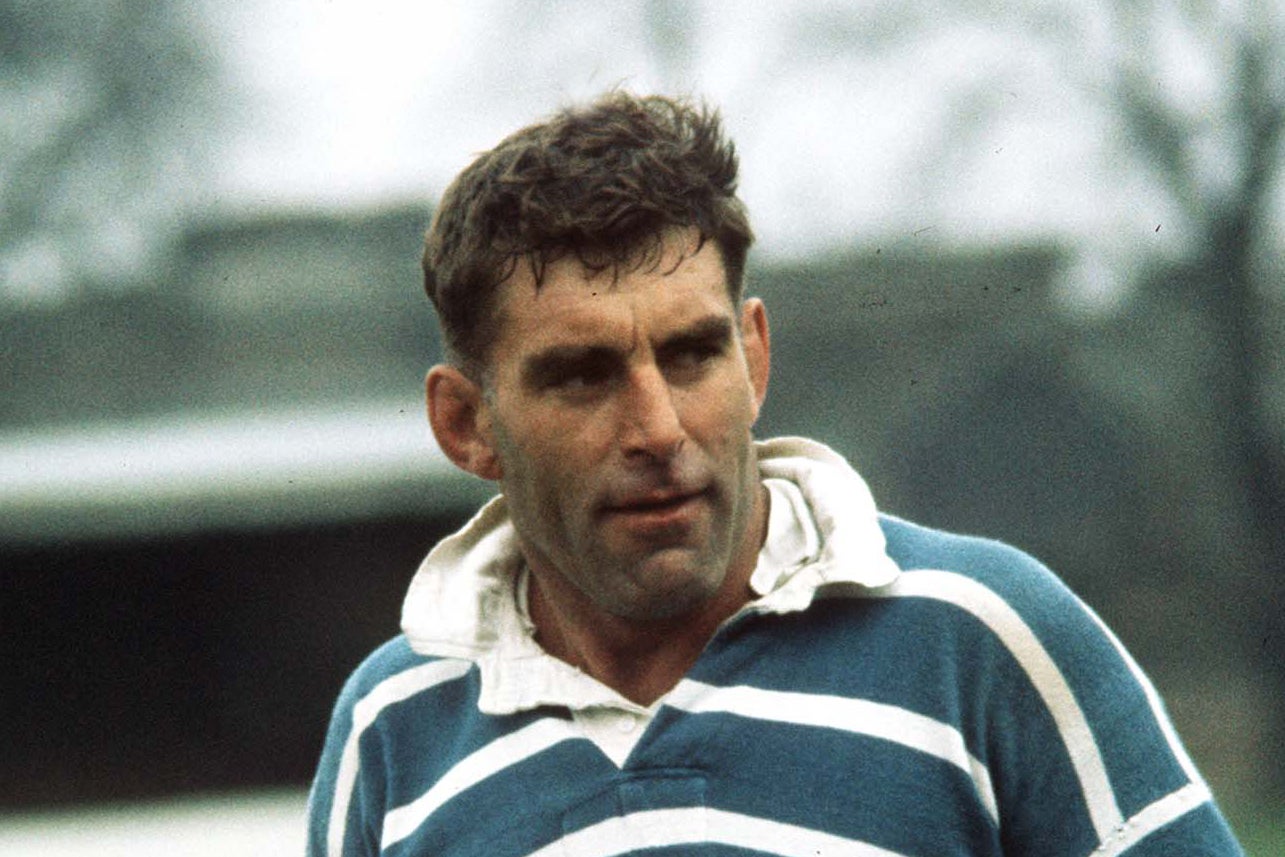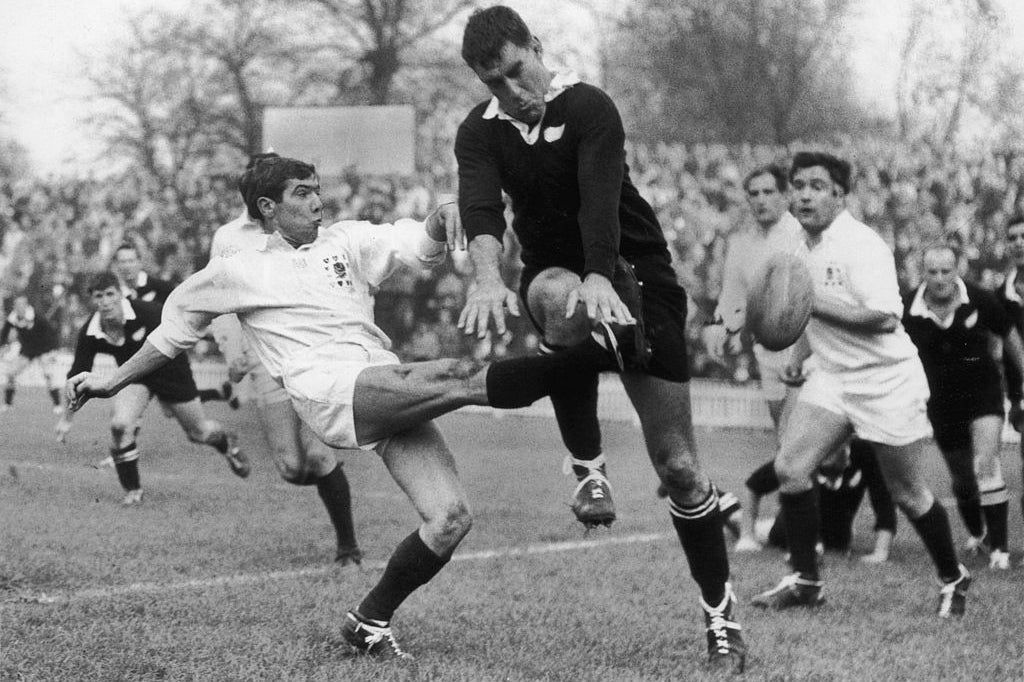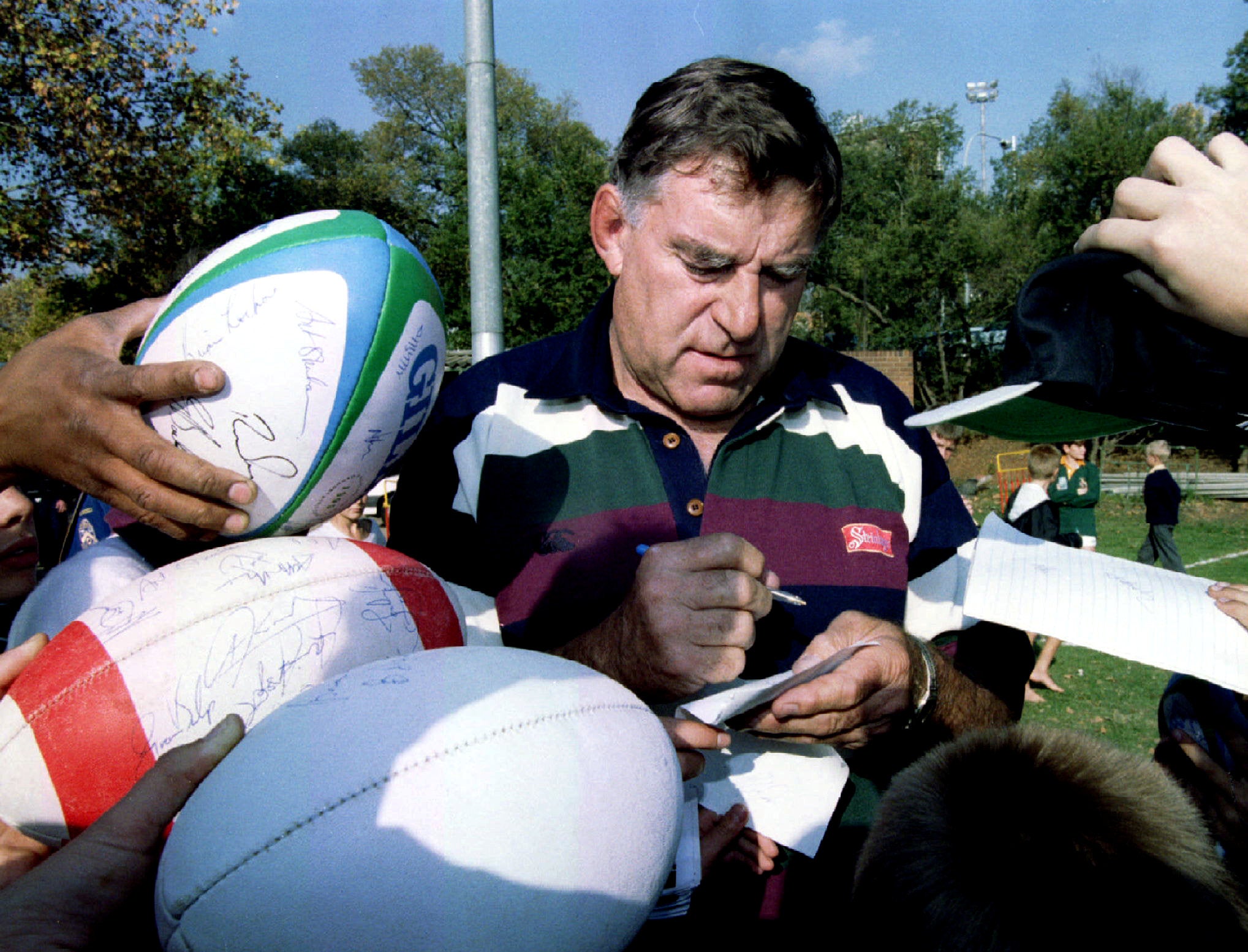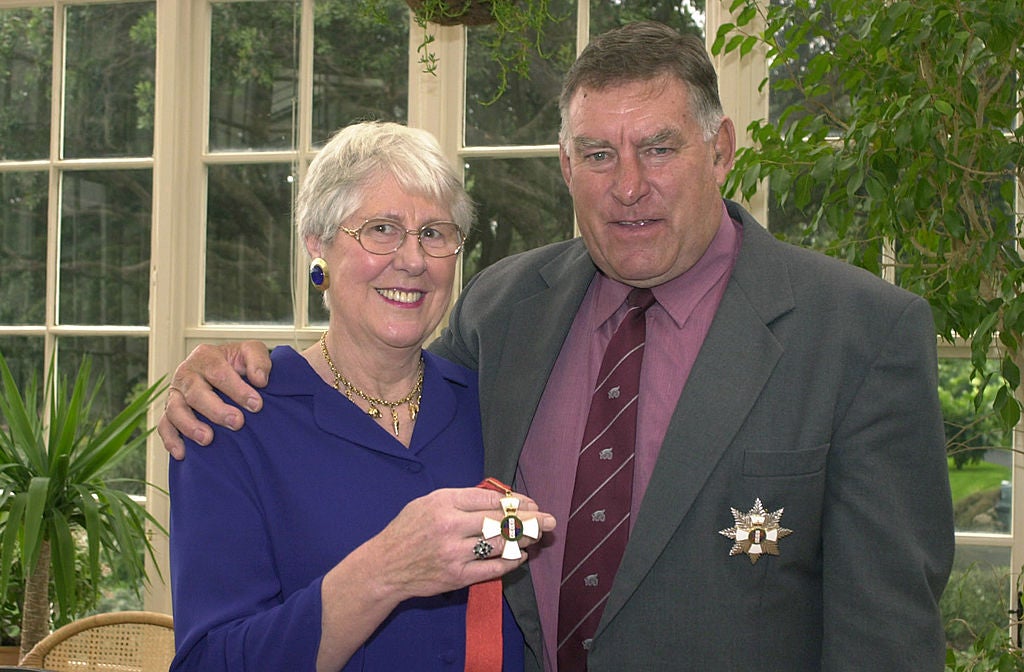Sir Colin Meads, sheep farmer and New Zealand’s player of the 20th century
The epitome of Kiwi rugby, ‘Pinetree’ captained the All Blacks in the famous 1971 Lions tour and managed them in the 1995 Rugby World Cup

Your support helps us to tell the story
From reproductive rights to climate change to Big Tech, The Independent is on the ground when the story is developing. Whether it's investigating the financials of Elon Musk's pro-Trump PAC or producing our latest documentary, 'The A Word', which shines a light on the American women fighting for reproductive rights, we know how important it is to parse out the facts from the messaging.
At such a critical moment in US history, we need reporters on the ground. Your donation allows us to keep sending journalists to speak to both sides of the story.
The Independent is trusted by Americans across the entire political spectrum. And unlike many other quality news outlets, we choose not to lock Americans out of our reporting and analysis with paywalls. We believe quality journalism should be available to everyone, paid for by those who can afford it.
Your support makes all the difference.Sir Colin Meads, who played 133 times for the All Blacks, including 55 Tests, was named by the New Zealand Rugby Union in 1999 as the All Blacks’ “Player of the Century”. No one, in New Zealand or elsewhere, disagreed. Usually playing lock, from the late 1950s into the early 1970s, he was a fierce “enforcer,” his towering stature winning him the nickname “Pinetree”, “Piney”, or often simply “Tree”.
He played in the undefeated All Blacks side which toured the Northern Hemisphere in 1967 – often described as the greatest rugby team of all time – during which a Welsh player reportedly said: “He is mean and surly, and direct contact with him has the same impact as a 10-megaton bomb.”
That physicality led to dark moments in his career. In 1966 he punched British Lion David Watkins; in 1968 Australian halfback Ken Catchpole's career was effectively ended when he was torn from a ruck; in 1969 Welsh hooker Jeff Young suffered a broken jaw, courtesy of Meads.

His most infamous run-in with officialdom as a player was in 1967 when he was ordered from Murrayfield in the Test against Scotland. It was only the second time an All Black had been sent off and for almost half a century Meads lived with being the last Kiwi to suffer such a fate; not until Sonny Bill Williams was dismissed during the second Test against the Lions in July did he manage to shed that dubious accolade.
Sir Colin captained the All Blacks in the famous series against the Lions in 1971. The epitome of Kiwi rugby – a fearless, ferocious but off-the-field humble number five – he was also a driving force behind Maori rugby, helping to save the New Zealand all-Maori team (now known as the Maori All Blacks) from being axed in the 1990s. He became the national team manager in 1994 and the following year led them to the Rugby World Cup final in South Africa, where they were beaten by the host nation.
As a sheep farmer, he always considered himself “a country hick” and put his family first, his farm second and rugby third. He was appointed MBE in 1971 and knighted in 2009.

Colin Meads was born on 3 June 1936 in Cambridge, near Hamilton in the Waikato region of the North Island, to Vere Meads and his wife Ida (née Gray), and he became a fourth-generation sheep farmer. The family moved to the province of King Country when he was seven and he would remain there, in Te Kuiti, for the rest of his life, farming but also appearing 139 times for the King Country province rugby team.
He started his Test career in the back row and stood out for his ability to run with the ball at pace, aided by massive hands and a grip which ironically came from having scarlet fever when he was nine years old. (It left his fingers more claw-like than normal.) In the words of the respected French sports newspaper L’Equipe: “He was an excellent ball gatherer despite a relatively modest size (1.92m) for a lock. He took advantage of his sense of timing and gigantic hands to reign in the lineout. Between 1964 and 1967, he was the figurehead of a pack led by the pillar (Sir) Wilson Whineray and the number eight (also Sir) Brian Lochore.”

Sir Colin and his wife were present at the unveiling of a statue of himself in his hometown of Te Kuiti in June this year, as was his younger brother Stan, who played 30 times for the All Blacks – often alongside his sibling – before giving up rugby to concentrate on the family farm.
He is survived by his wife of 60 years, Verna, five children, 14 grandchildren and seven great-grandchildren. Last week, his casket was protected by Maori warriors performing a haka at his marae – or memorial service – ahead of Monday’s funeral, which is expected to shut down his adopted hometown of Te Kuiti.
Sir Colin Meads, rugby international, born 3 June 1936; died of pancreatic cancer 20 August 2017
Join our commenting forum
Join thought-provoking conversations, follow other Independent readers and see their replies
Comments